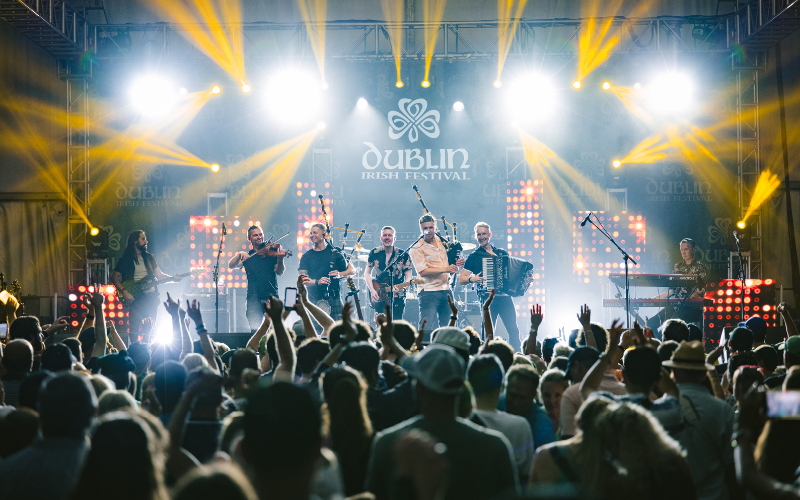Is The Little Stranger a dark meditation on the deadly cost of social exclusion? Or is it a well-told ghost story that wants nothing more than to scare you whilst it reaches its conclusion?
The less you know going into Domhnall Gleeson's spooky new film the better, and the more surprising the final result will be.
Gleeson, 35, has been cast as the mysterious Dr. Faraday and when we first meet him as he's driving up to Hundreds Hall in the late 1940s, a once imposing stately home has fallen on harder times.

Dr. Faraday has come to treat a young maid, whose nerves have been jangled by working too much on her own in this spooky, drafty old pile where most rooms are mostly closed off to the visitors and the owners alike.
But no sooner can he patronizingly tell her she's been imagining things than she replies there's something off about the place, something truly unsettling, and she'd really prefer to return home to her father and get the hell out of this gloomy mansion once and for all.
Then Dr. Faraday speaks to Caroline Ayres, the youngest daughter of the aristocratic family that still live in the now falling down mansion.
Caroline (played so well by Ruth Wilson that you might as well award her the best actress Oscar right now) is upper crust but completely unaffected, she's smart and sincere and understands better than anyone around her exactly where this story might be headed.
The only other surviving members of the family are the war wounded Roderick (Will Poulter) and Caroline's aging mother Mrs. Ayres (Charlotte Rampling).
Roderick has been disfigured by fire in combat and his mother has become a recluse, being embarrassed to be seen in the reduced circumstances the family is now forced to live in.
Dr. Faraday is, without doubt, the most paired down and challenging role that Gleeson has tackled to date, being the ultimate buttoned-up Brit, a role that in other hands might have telegraphed developments in the story but in Gleeson's hands are completely inscrutable. Part of this is also due to the fact that the film is helmed by Irish film director Lenny Abrahamson, who brings real subtlety and skill to the proceedings.
Based on the 2009 novel by Sarah Waters "The Little Stranger" is both a ghost story and an exploration of real-life class conflict, which erupts in ways that are both straightforward and supernatural. What Water's book and the film both do well is to trace the fault lines that exist between privilege and poverty.
But Waters never quite reconciles whether what we are witnessing is a haunting or a revenge drama and in one important sense, neither does the film.
Gleeson is increasingly unnerving as the perplexing doctor, alternating between charm and complete withdrawal so that we never quite get a good read of him. In his interactions with Caroline, he is most himself, as she slowly draws him out with a peculiar mix of curiosity and challenge.
Caroline's a tragic figure in many ways, clearly stuck in this lonely old mansion looking after her brother and her mother.

Meanwhile, the chemistry between Gleeson and Wilson is what directors dream of. They match each other note for note from the first frame to the last and they carry the film together.
Abrahamson has crafted an atmospheric shocker that relies on a slow-building sense of dread to deliver its chills. Onscreen gore, whilst present, is thankfully kept to a minimum because this film and this director knows that the biggest chills are delivered by what you can imagine but can't see.
As Faraday, Gleeson speaks in a cut glass British accent because his character is socially ambitious and wants to rise above his humble origins, and its also partly because he secretly feels so at home in this faded but still imposing house.

It's been quite a few years of British roles for the Irish actor, from his turn as author A.A. Milne to his glowering general in Star Wars (the final film in the current sci-fi trilogy is now in production) he's been playing upper-crust English heroes and villains at quite a clip lately.
There's no danger of him getting typecast, however. The characters he plays may be predominantly British lately, but they're so distinctly different as types that you may have a hard time believing they were actually played by the same actor.
Just as in his breakthrough film the Oscar-winning "Room," Abrahamson excels at creating an eerie and intensely claustrophobic atmosphere in "The Little Stranger," where the danger is often just out of sight but never out of mind.
Abrahamson turns out to be an ideal fit for this material because he brings to it a Dickensian eye for revealing character detail and for plot structure. This film could easily double bill with "Great Expectations" as a sinister shocker where nothing is ever quite what it seems and no one is ever to be entirely trusted.
As well as delivering the scares "The Little Stranger" also looks fantastic. Frame after frame is composed with an almost painterly attention to form and detail. Light grays and dark blues predominate at Hundreds Hall as though the place is literally haunting itself for most of the film.
But it's the affection and anxiety between Wilson and Gleeson that really sells this absorbing new film (which opens August 31). Will they be lovers or friends, will they marry or part? What exactly unites them and will it be stronger than the currents that divide?

You could say that at one level "The Little Stranger" is a fable about the daily fear the privileged live with that one day their wealth and position will be stripped from them by populism or revolt or socialism or worse. You could also say it represents a warning about what happens when the downtrodden strike back.
The only criticism I could offer of this finely made and perfectly executed new film is that it seems to want it both ways, pursuing both the supernatural and the psychological elements, and never quite cohering into one or the other. Some might call this process hedging your bets.
Ultimately it's a criticism that I lay at Walter's door because the source material so clearly informs the screen version. Is "The Little Stranger" a meditation on the deadly cost of social exclusion or is it a ghost story that wants nothing more than to scare you whilst it reaches its conclusion?
Either way, you'll find plenty to enjoy in this completely absorbing new film, which will keep you guessing even after the final frame.
Are you going to check out "The Little Stranger?" What do you make of the trailer?




Comments